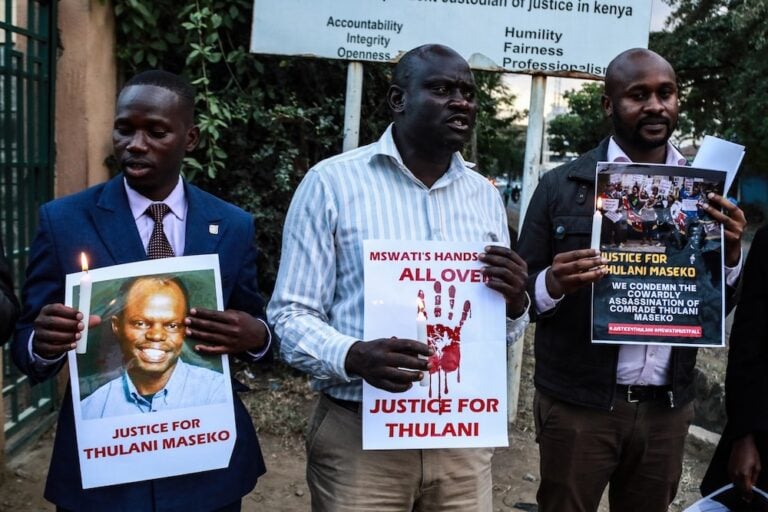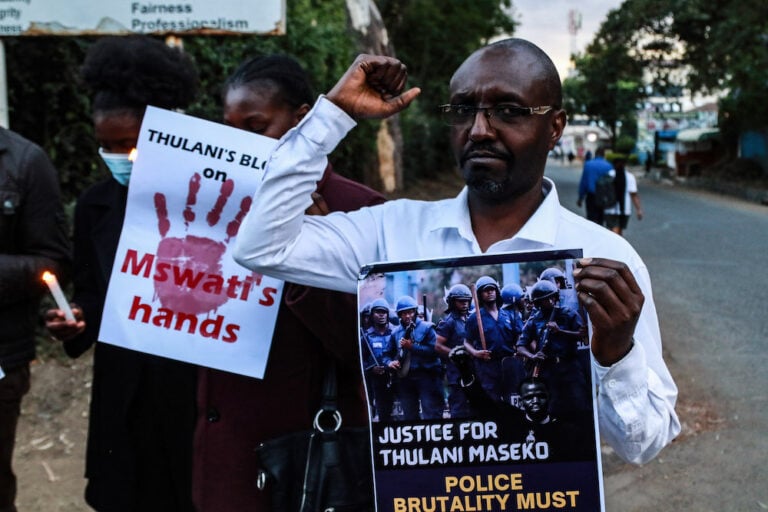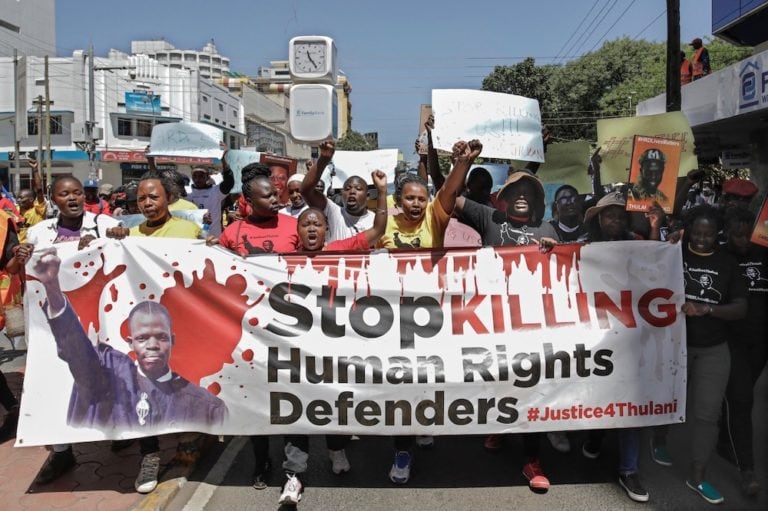(MISA/IFEX) – Scraping the recently-approved media regulation bill and a review of the Constitution-making process are among the 27 points which influenced a two-day mass work boycott in Swaziland on 14 and 15 October 1997. The boycott, which paralysed the formal sector in the country including government offices, was organised by the Swaziland Federation of […]
(MISA/IFEX) – Scraping the recently-approved media regulation
bill and a review of the Constitution-making process are among
the 27 points which influenced a two-day mass work boycott in
Swaziland on 14 and 15 October 1997. The boycott, which paralysed
the formal sector in the country including government offices,
was organised by the Swaziland Federation of Trade Unions (SFTU).
**Updates IFEX alerts dated 7 October and 17 September 1997**
SFTU Secretary-General Jan Sithole said that his union found it
imperative to ask the government to scrap the bill because it
threatened to stifle the right to free expression in Swaziland
even further. “A free press is a voice for the voiceless,” he
said, “and should not be compromised to the people’s
disadvantage.” Sithole said fundamental human rights, including
that of the press, are non-negotiable issues.
The media bill, introduced on 3 October, is aimed at introducing
government control of public and private media operations. It
seeks to introduce a media council appointed by a government
minister, which will license and arbitrate in media complaints.
The council has power to enforce a government-drafted code of
ethics, de-register a journalist, as well as fine or imprison
them for violating the proposed law. It will also set minimum
qualifications for a journalist to be licensed. These will
include O level passes and a journalism certificate (see IFEX
alerts).
On 7 October, Swaziland journalists took to the streets to
protest the bill. They have now been joined by the labour
movement. The SFTU believes that what Swaziland needed
immediately was a democratically-written Constitution with an
enshrined bill of rights. In its 27 demands, the labour movement
is also asking the government to disband the Constitutional
Review Committee (CRC), saying it is “unrepresentative” and owed
too much allegiance to the current regime of King Mswati.
“Swaziland’s human rights are curtailed by the existing 1973
state of emergency which killed the bill of rights and free
political expression,” Sithole said, adding that the mass stay-
away is a show of “no confidence in the current government”.
Human rights activist Simon Noge says the country’s media have
been made to adopt the government line and that the media bill
will make things worse. Government spokespeople, however, say
that the media bill will take normal legislative procedure before
it is passed or rejected. The public will also be able to discuss
the bill, they say. On 14 October, Senator Walter Bennet assured
journalists that Parliament would throw out oppressive clauses in
the bill. However, he advised the media that it would be improper
to dismiss the whole bill, as it has “necessary elements which
will improve the standard of reporting.”
Swaziland journalists say they are now preparing a legal
challenge of the law in the Swaziland courts. “This bill is in
bad faith especially [since] it is coming at a time when the
country is drafting a new Constitution with a bill of rights. It
may find itself in conflict with the constitution as much as it
is already with our internationally recognised rights,” said MISA
Swaziland National Director Ntsiki Zulu.
Recommended Action
Send appeals to authorities:
media bill
government interference in media work, which is in conflict with
the spirit of press freedom
necessary for the growth of democracy
should be left to a voluntary media-driven body determined by
journalists themselves
rights enshrining fundamental freedoms, including those of the
press and access to information
Appeals To
Hon. Prime Minister Sibusiso Dlamini
Office of the Prime Minister
PO Box 395
Mbabane, Swaziland
Tel: +268 42251 or 41329 or 49086
Fax: +268 42774Rt. Hon. Minister Muntu Mswane
Ministry of Information
PO Box 338
Mbabane, Swaziland
Tel: +268 42755 (direct) or +268 42761
Fax: +268 42774
</CON<
Please copy appeals to the source if possible.
For further information, contact David Nthengwe at MISA, Private
Bag 13386, Windhoek, Namibia, tel: +264 61 232975, fax: +264 61
248016, e-mail: research@ingrid.misa.org.na.


